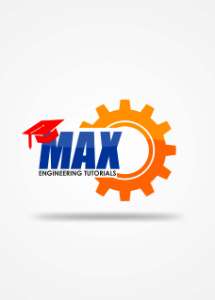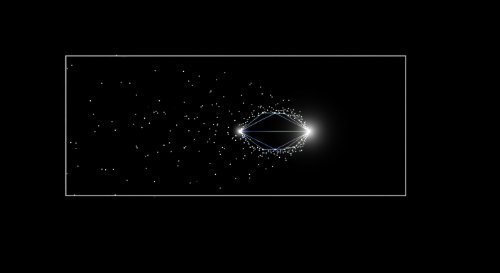Worked examples (2) - Boundedness of Sequences | Analysis of Infinite Sequences and Series - Real Analysis (Undergraduate Advanced)
SPONSORED Get Personalized Tutoring NowStruggling with a tough concept or looking to advance your skills? Our expert tutors offer one-to-one guidance tailored to your unique needs.
Get instant support, clear explanations, and practical strategies to master even the most challenging subjects. With flexible scheduling and customized learning plans, success is just a session away.
Book your personalized tutoring today and start achieving your academic goals!
Get Personalized Tutoring NowStruggling with a tough concept or looking to advance your skills? Our expert tutors offer one-to-one guidance tailored to your unique needs.
Get instant support, clear explanations, and practical strategies to master even the most challenging subjects. With flexible scheduling and customized learning plans, success is just a session away.
Book your personalized tutoring today and start achieving your academic goals!
Struggling with a tough concept or looking to advance your skills? Our expert tutors offer one-to-one guidance tailored to your unique needs. Get instant support, clear explanations, and practical strategies to master even the most challenging subjects. With flexible scheduling and customized learning plans, success is just a session away. Book your personalized tutoring today and start achieving your academic goals!
 Analysis of Infinite Sequences and Series - Real Analysis (Undergraduate Advanced)This course provides the formal, proof-based foundation for the concepts of convergence covered in calculus. It moves beyond computation to explore the deep theoretical questions of why sequences and series converge. The material covers the topological properties of sequences, key convergence theorems like Bolzano-Weierstrass, Cauchy sequences, and the advanced topic of uniform convergence for series of functions.
This subject is the gateway to higher mathematics. The rigorous proof-writing and analytical skills developed here are non-negotiable for any student pursuing a degree in pure or applied mathematics. These principles are the theoretical bedrock upon which advanced concepts in differential equations, functional analysis, and theoretical physics are built.
By the end of this course, you will be able to construct rigorous proofs for statements about the convergence of sequences. You will also be able to apply the Monotone Convergence and Bolzano-Weierstrass theorems, use the Cauchy Criterion to prove convergence, and analyse the uniform convergence of a series of functions using the Weierstrass M-Test.
This course is for mathematics majors and advanced students who have already completed a full Calculus II course. It is the standard curriculum for a first module in Real Analysis and is an essential prerequisite for graduate-level study in mathematics, physics, and theoretical computer science.
Analysis of Infinite Sequences and Series - Real Analysis (Undergraduate Advanced)This course provides the formal, proof-based foundation for the concepts of convergence covered in calculus. It moves beyond computation to explore the deep theoretical questions of why sequences and series converge. The material covers the topological properties of sequences, key convergence theorems like Bolzano-Weierstrass, Cauchy sequences, and the advanced topic of uniform convergence for series of functions.
This subject is the gateway to higher mathematics. The rigorous proof-writing and analytical skills developed here are non-negotiable for any student pursuing a degree in pure or applied mathematics. These principles are the theoretical bedrock upon which advanced concepts in differential equations, functional analysis, and theoretical physics are built.
By the end of this course, you will be able to construct rigorous proofs for statements about the convergence of sequences. You will also be able to apply the Monotone Convergence and Bolzano-Weierstrass theorems, use the Cauchy Criterion to prove convergence, and analyse the uniform convergence of a series of functions using the Weierstrass M-Test.
This course is for mathematics majors and advanced students who have already completed a full Calculus II course. It is the standard curriculum for a first module in Real Analysis and is an essential prerequisite for graduate-level study in mathematics, physics, and theoretical computer science.
This course provides the formal, proof-based foundation for the concepts of convergence covered in calculus. It moves beyond computation to explore the deep theoretical questions of why sequences and series converge. The material covers the topological properties of sequences, key convergence theorems like Bolzano-Weierstrass, Cauchy sequences, and the advanced topic of uniform convergence for series of functions. This subject is the gateway to higher mathematics. The rigorous proof-writing and analytical skills developed here are non-negotiable for any student pursuing a degree in pure or applied mathematics. These principles are the theoretical bedrock upon which advanced concepts in differential equations, functional analysis, and theoretical physics are built. By the end of this course, you will be able to construct rigorous proofs for statements about the convergence of sequences. You will also be able to apply the Monotone Convergence and Bolzano-Weierstrass theorems, use the Cauchy Criterion to prove convergence, and analyse the uniform convergence of a series of functions using the Weierstrass M-Test. This course is for mathematics majors and advanced students who have already completed a full Calculus II course. It is the standard curriculum for a first module in Real Analysis and is an essential prerequisite for graduate-level study in mathematics, physics, and theoretical computer science.
![[OAU, Ife] MTH 201: Mathematical Methods I](https://media.unidrills.com/avatars/learningTrack/OHoduvR7EGCLQ1QVppMK.JPEG) [OAU, Ife] MTH 201: Mathematical Methods IThis learning track delivers the complete mathematical toolkit required for a university-level science, engineering, or computing degree. It systematically covers the entire MTH 201 curriculum, building from the foundational principles of single-variable calculus - functions, limits, continuity, and differentiability - to the advanced methods of multivariable calculus, infinite series, numerical methods, and ordinary differential equations. This is the definitive preparation for advanced quantitative study.
This programme is designed for second-year students offering MTH 201 at Obafemi Awolowo University, Ile-Ife, Nigeria. It is also helpful for any student in a STEM field - including physics, engineering, and computer science - who requires a rigorous and comprehensive command of calculus and its applications.
This track delivers a full skill set in mathematical analysis and applied problem-solving. Graduates will be able to solve a wide range of problems, from optimising multivariable functions to modelling dynamic systems with differential equations and testing the convergence of infinite series. This programme directly prepares students for success in advanced courses in vector calculus, partial differential equations, and real analysis, providing the necessary foundation for a career in engineering, data science, or theoretical physics.
[OAU, Ife] MTH 201: Mathematical Methods IThis learning track delivers the complete mathematical toolkit required for a university-level science, engineering, or computing degree. It systematically covers the entire MTH 201 curriculum, building from the foundational principles of single-variable calculus - functions, limits, continuity, and differentiability - to the advanced methods of multivariable calculus, infinite series, numerical methods, and ordinary differential equations. This is the definitive preparation for advanced quantitative study.
This programme is designed for second-year students offering MTH 201 at Obafemi Awolowo University, Ile-Ife, Nigeria. It is also helpful for any student in a STEM field - including physics, engineering, and computer science - who requires a rigorous and comprehensive command of calculus and its applications.
This track delivers a full skill set in mathematical analysis and applied problem-solving. Graduates will be able to solve a wide range of problems, from optimising multivariable functions to modelling dynamic systems with differential equations and testing the convergence of infinite series. This programme directly prepares students for success in advanced courses in vector calculus, partial differential equations, and real analysis, providing the necessary foundation for a career in engineering, data science, or theoretical physics.
This learning track delivers the complete mathematical toolkit required for a university-level science, engineering, or computing degree. It systematically covers the entire MTH 201 curriculum, building from the foundational principles of single-variable calculus - functions, limits, continuity, and differentiability - to the advanced methods of multivariable calculus, infinite series, numerical methods, and ordinary differential equations. This is the definitive preparation for advanced quantitative study. This programme is designed for second-year students offering MTH 201 at Obafemi Awolowo University, Ile-Ife, Nigeria. It is also helpful for any student in a STEM field - including physics, engineering, and computer science - who requires a rigorous and comprehensive command of calculus and its applications. This track delivers a full skill set in mathematical analysis and applied problem-solving. Graduates will be able to solve a wide range of problems, from optimising multivariable functions to modelling dynamic systems with differential equations and testing the convergence of infinite series. This programme directly prepares students for success in advanced courses in vector calculus, partial differential equations, and real analysis, providing the necessary foundation for a career in engineering, data science, or theoretical physics.